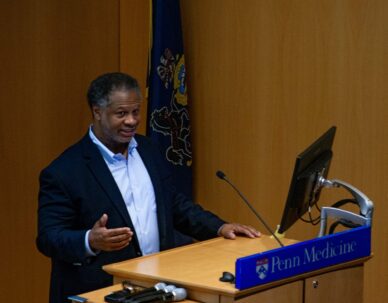
P2R: Prehab to Rehab
- Behavior Change,
- Clinical Transformation
Prehab to Rehab (P2R) aims to decrease length of stay associated with certain pancreatic surgeries by streamlining patient access to prehabilitation and rehabilitation services. Pending findings, there is an opportunity to expand these services to other types of cancer or surgery in the future.
A pancreaticoduodenectomy, also known as a Whipple procedure, is a major surgical operation for pancreatic cancer and chronic pancreatitis. Despite its complexity, the procedure is a mature and effective treatment, yet many patients who undergo pancreaticoduodenectomy continue to have poor clinical and functional outcomes. Physical functional decline and malnutrition are common after major surgery and can lead to loss of independence of activities of daily living, increased incidence of rehabilitation unit admission and nursing home placement, longer hospital length of stay, development of post-operative complications, impaired quality of life, and morbidity. For patients undergoing cancer surgery, both post and preoperative frailty are associated with poor outcomes and could postpone other adjuvant therapies. Rehabilitation programs, which have traditionally been the cornerstone of post-operative care for elderly and frail patients to salvage and improve physical fitness, have been shown to positively impact both clinical and quality of life outcomes.
Alternatively, there has been growing interest in the implementation of prehabilitation programs to optimize patients prior to surgery to preclude post-operative decline. Cancer prehabilitation is defined as a process that occurs between the time of cancer diagnosis and the beginning of treatment, including physical and psychological assessments to prevent or reduce the incidence and severity of current and future impairments. Within surgical oncology, systematic reviews surrounding prehabilitation programs have shown to improve functional capacity and health-related quality of life, and decrease length of stay and surgical complications. Evidence-based prehabilitation and rehabilitation programs can improve outcomes, quality of life, and reduce health care utilization among patients with cancer undergoing treatment; however, these services are currently fragmented and difficult to access.
The Oncology Prehab to Rehab (P2R) program is a technology-enabled, home-based prehabilitation/rehabilitation for patients undergoing neoadjuvant chemotherapy and surgical resection for pancreatic cancer. Using recommendations from experts at Penn Medicine and principles of behavioral economics, P2R focuses on four domains to improve patient outcomes: physical activity, nutrition, patient and caregiver education, and smoking cessation. An innovation team led by the Penn Center for Cancer Care Innovation (PC3I) and the Department of Surgery was assembled to reimagine the accessibility of prehabilitation and rehabilitation services for patients undergoing the Whipple procedure. A multidisciplinary group of over twenty highly engaged stakeholders from within Penn Medicine have worked to create the content and the operational infrastructure for P2R. Researchers have completed a nano-pilot to iterate on the program and determine its initial efficacy and feasibility, with encouraging feedback that P2R is engaging, feasible, and convenient for patients.
P2R will aim to not only improve physical fitness, frailty and nutritional status prior to surgery, but will also reduce postoperative complications, health care utilization, and costs associated with treatment of pancreatic cancer. There is an opportunity to expand these services to other types of cancer or surgery in the future.
Penn Medicine
Project Leads
-

Victoria Gershuni
MD, MSGM, MSTR
Assistant Professor of Surgery, Hospital of the University of Pennsylvania
Project Team
-
Marianne Aloupis
-
David Asch
-
Justin Bekelman
-
Ronald DeMatteo
-
Holly Foster
-
Nikki Gilroy
-
Justin Grischkan
-
David Lee
-
Major Kenneth Lee
-
Frank Leone
-
Alison W. Loren
-
Amy Lorenzo
-
Joanna O'Gorman
-
Mark O'Hara
-
Caitlin M. O'Neill
-
Robert Roses
-
Scott Rushanan
-
Abigail Scott
-
Mary Scott
-
Ryan Singer
-
Megan Todorow
-
Matthew Van Der Tuyn
-
Charles Vollmer
-
Virginia Waldrop
-
Rob Weker
-
Jasmine Zheng
